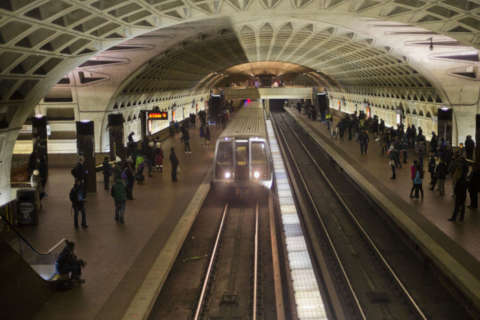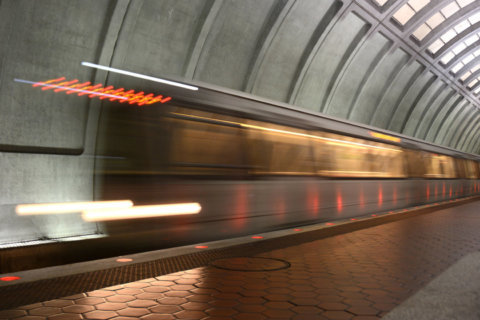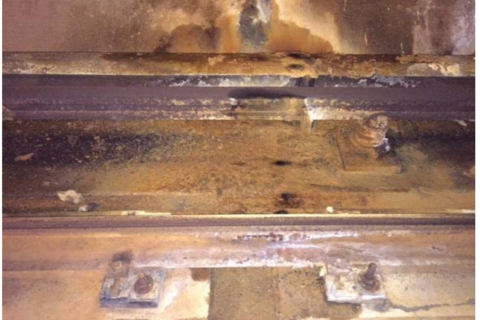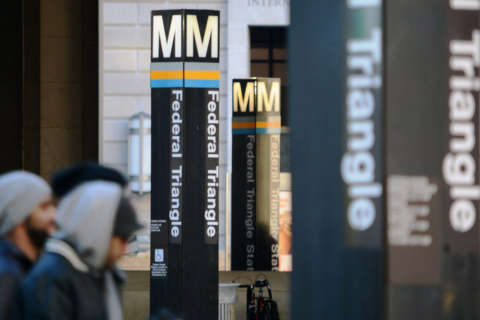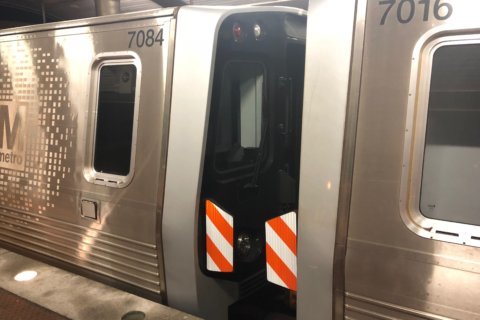WASHINGTON — The Metrorail Safety Commission is set to provide the first-ever local safety oversight of Metro that has enforcement power as soon as this winter.
“I can’t tell you how excited I am … that we have made so much progress toward taking over the safety oversight of Metrorail,” Chairman Christopher Hart said.
The Federal Transit Administration has had temporary direct safety oversight of Metro since late 2015 and has also, for nearly two years, been withholding federal transit funding from all of Maryland, Virginia and the District until the Metrorail Safety Commission is certified.
The federal deadline for certification of all similar state safety oversight agencies is April 15, and commission leaders are now extremely optimistic that they will be ready before then.
“The deadline is the middle of April of 2019, but we have all indications that it’s going to happen actually before that, so we are very excited about that possibility, and we are certainly ready and eager to take over,” Hart said at a meeting last week.
Commission staff have been working through an extensive training and transition process, while also addressing the basics of setting up a new organization.
Since the commission submitted its certification application and operational plans in late September, CEO David Mayer said the FTA has led the transition process.
That is all about to change starting in January, though.
“Our staff … will actually begin to pilot test our program standard and our forms and procedures to actually begin to do some of the oversight work,” Mayer said.
Up to now, the commission’s inspectors have been learning from or shadowing FTA inspectors.
That work has included detailed briefings about FTA findings and inspections in October and November, and shadowing the FTA inspectors in December as they checked on Metro’s track and structures, signals, train control center and systems, shops and rail yards.
The FTA has also given detailed briefings about the outstanding corrective action plans Metro must complete to address findings from previous National Transportation Safety Board, FTA and other investigations.
The commission expects to schedule one more public meeting just before FTA certification. Mayer expects that meeting to be held in February, if current plans hold. Public meetings have so far been sporadic, but the commission expects to meet monthly after certification to discuss specific investigative findings and other issues.
Hart, a former National Transportation Safety Board chairman, expects many meetings will be long and detail-focused and include an opportunity for limited public comment.
“Today’s meeting is going to be pretty short and sweet, but … typical meetings will not be so short and sweet, and in order to keep the meetings from becoming unduly long, one of the things we want to do is to have issues of importance being addressed by committees in great detail … before it reaches public discussion in a meeting like this,” he said on Dec. 20.
The committees could also allow the three alternates to the six main commissioners to be more involved in issues, something no longer permitted on Metro’s own board.
“The alternates really bring a lot to the table in terms of background, experience … and one of the ways that we can really take advantage of that valuable contribution is have them participate actively in the committees and even lead committees,” Hart said.

